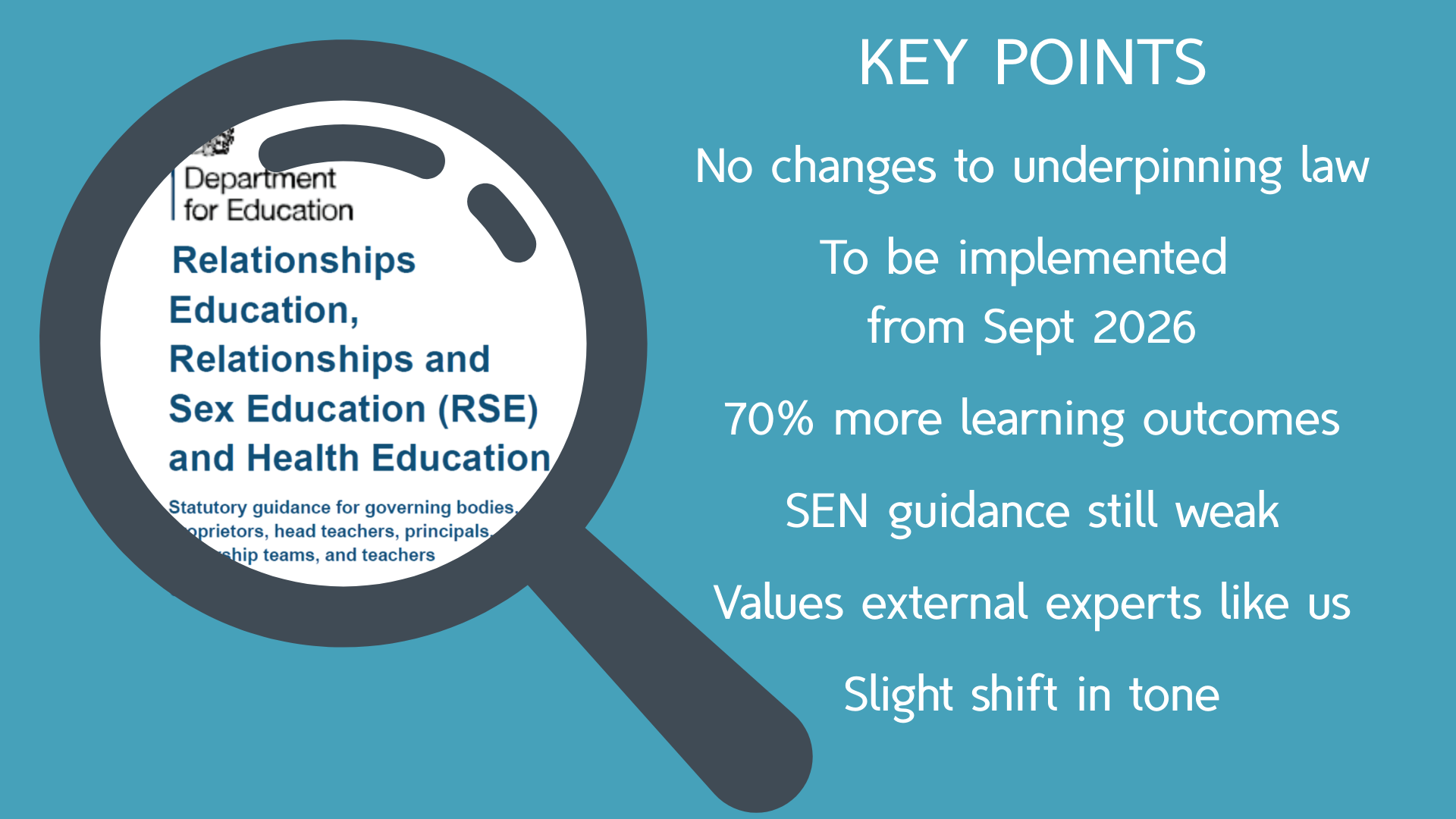An important event in our field of Relationships, Sex (and Health) Education (RSHE) is the recent release of updated statutory guidance for RSHE from the Department for Education (DfE). You may have seen some debate about this in the news; here, we will summarise the main changes and let you form your own opinion.

· There is no change to the underpinning law (the Children and Social Work Act 2017). This is the DfE’s guidance on how to apply the law, statutory from September 2026.
· There is a significant amount of new content compared to the 2019 version, including a 70% rise in the number of learning outcomes schools are required to hit by the time children leave secondary school.
· The new 2025 version continues to encourage the use of external experts, such as acet UK, as they provide expert knowledge and a different way of working, and can be blended with delivery by school staff.
· There is a slight shift in tone from the concept of minimum standards of what must be taught, to stating some prohibitions, e.g. when talking about mental health, the guidance lists both what to say and some things that you should not say.
· Guidance around RSHE for SEN pupils remains minimal – it only contains a couple of paragraphs.
· Engagement is emphasised – both engagement with pupils, and engagement and transparency with parents.
· There is a little more clarity over what constitutes ‘Sex Education’ e.g. Paragraph 14 states that Relationships Education shouldn’t include details about sexual activity but can cover sensitive topics such as sexual violence, in order to keep children safe.
· The new guidance states that pupils should not be taught as a fact that all people have a gender identity, but does include topics such as sexism, misogyny, and gender stereotypes. (We are awaiting updated guidance for schools from the DfE on supporting gender-questioning young people).
· For Primary Relationships Education, there is greater emphasis on teaching young people skills, e.g.. around improving relationships, and body boundaries.
· New outcomes in primary include: talking about loneliness, grief, loss, and going into more depth about online risks and safety.
· New outcomes in secondary include: marriage legal protection, misogyny, violence against women and girls, gender stereotypes, sexism in the media, AI (e.g. deep fakes, AI-generated explicit images, chat bots), and going into more depth about personal safety.
· The term self-esteem is used for the first time in this version of the guidance, with an emphasis on balancing the needs of others without neglecting your own. It also talks about assertiveness versus control, boundaries, and managing emotions.
